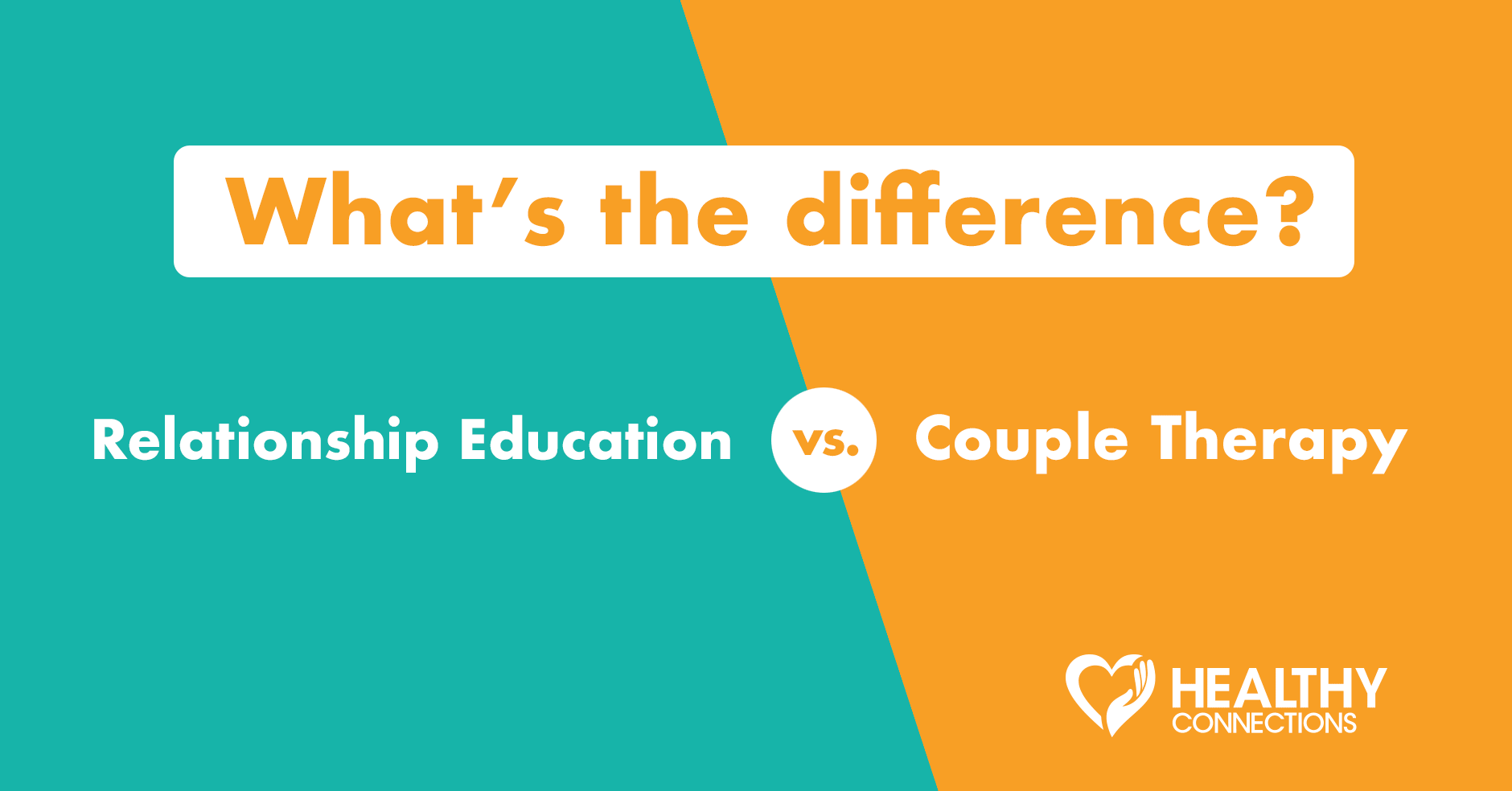865-974-5858
Relationship Education vs. Couple Therapy: What’s the difference?

Perhaps you’re seeking help for your relationship, or may consider doing so in the future, but there are a variety of services available and you’re wondering which one is best for you. Though distinctly different in many ways, the terms “relationship education” and “couple therapy” are often used interchangeably and many people are unclear about what the differences actually are [1]. Relationship education is seen as a primary prevention service, which means that it’s targeted towards reducing or deterring future relationship issues, whereas couple therapy is a tertiary intervention aimed at assisting with more complex or chronic issues faced by couples [2,3]. Despite being developed as a prevention program, research has found that satisfied couples are less likely to view relationship education positively, as compared to those in more distressed relationships, which is inhibiting couples from seeking help early on when they are more likely to benefit from this type of program [3]. Furthermore, couples are less likely to participate in relationship education if they do not have a clear understanding of what it is [4].
Relationship education provides general information and teaches important skills associated with successful relationships through a combination of didactic teaching, group discussion, couple exercises, and video examples [1,5]. While sharing often occurs during the group discussions, participants are not expected to discuss their personal problems in depth [1]. The key difference between this and couple therapy is that therapy is an intervention for more complex or long-term relationship issues, whereas relationship education is designed to deal with less difficult issues, increase knowledge and skills, and prevent more complicated issues from occurring in the future [4]. Participants in relationship education programs have identified the aspects of this prevention format that are most important:
- attendance is voluntary and the relationship challenges they are experiencing are normalized,
- there is value in learning as a group and receiving support from the other couples in their group, and
- the structured curriculum provides reassurance that the information is based on scientific evidence and the skills they are learning can be implemented right away [1].
It is important for couples seeking relationship help to understand the differences between the types of support available in order to choose the best one for the current circumstances of their relationship.
References:
- Ooms, T. (2010). Marriage and relationship education and couples and marriage therapy: What’s the difference? Retrieved from the National Healthy Marriage Resource Center.
- Myers-Walls, J. A., Ballard, S. M., Darling, C. A., & Myers-Bowman, K. S. (2011). Reconceptualizing the domain and boundaries of family life education. Family Relations, 60, 357-372.
- Burr, B. K., Kuns, J. B., & Hubler, D. S. (2017). Investigating confusion between perceptions of relationship education and couples therapy. Journal of Human Sciences and Extension, 5(1), 76-90.
- Burr, B. K., & Hubler, D. S. (2019). Emerging ideas. Which relationship service fits best? Teaching the difference between relationship education and couples therapy. Family Relations, 1-8.
- Halford, W. K., Markman, H. J. & Stanley, S. (2008). Strengthening couples’ relationship with education: Social policy and public health perspectives. Journal of Family Psychology, 22(3), 497-505.
